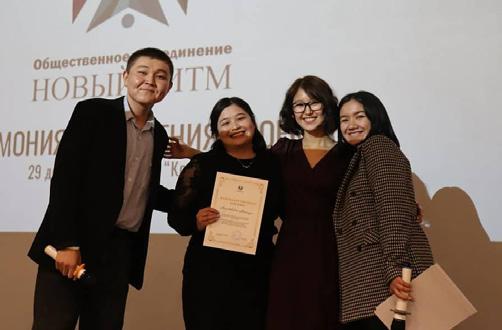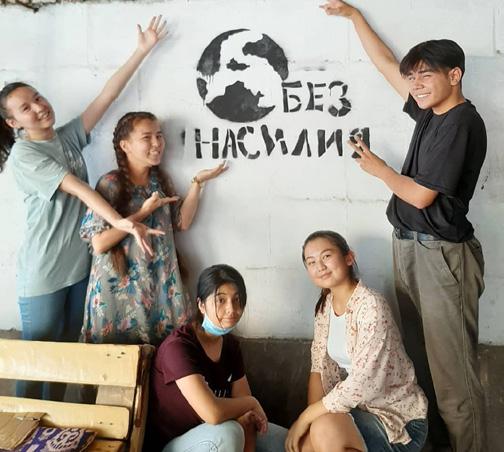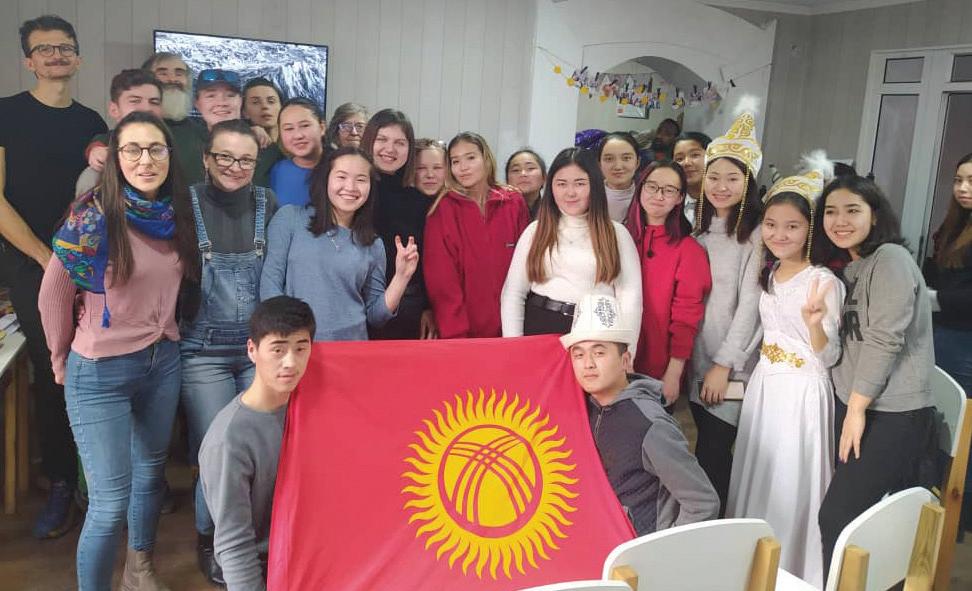
4 minute read
Democratic Youth Organizing
The countries of Central Asia are generally categorized as hierarchical societies in which citizens and civil society have little influence on the political system. Marked by age-based hierarchies, the societies of the region grant little voice to young people, and decisions that affect young people and their futures rarely embrace the perspectives of the youth. For the last five years, independent voices in Central Asia have been forced to deal with increased repression as a result of continued pressure from authorities. Civil society groups face restrictions imposed in the name of law and order, and their work has been increasingly stigmatized and criminalized. The existence of better opportunities for civil society organizations has a direct correlation with the health and quality of a democracy. As an example, in Kyrgyzstan – a country generally depicted as a democratic oasis in comparison to its neighbors – there are several factors that severely limit young people’s ability to actively and meaningfully participate in civil society. Because of persistent state corruption, as well as a lack of knowledge and advocacy channels, the youth of Kyrgyzstan experience difficulties in being able to exert influence on their life situation as well as claim their human and democratic rights.
Youth Empowerment with Novi Ritm
Advertisement
Since 2014, CAG has cooperated with the youth organization Novi Ritm in southern Kyrgyzstan. During 2020, a solidarity project called “Securing the rights to rights of youth in southern Kyrgyzstan” was the main focus of cooperation between the two organizations. The two year project has had its goal that young people in southern Kyrgyzstan – with a focus on Osh city – will be able to effectively make use of their rights. Current decision-makers, potential future decision-makers as well as youth in general (with a focus on young women), have built awareness about existing laws and policies countering discrimination. Furthermore, young women have been personally and politically empowered for them to make claims for their rights when they are breached.
During the year, Novi Ritm concluded two cycles of the long-running initiative called Girls Group, a self-development and awareness raising group for girls and young women. This year, the programme included, in addition to the regular sessions on for example street harassments, domestic violence and sexual and reproductive rights, were sessions on body positivity coupled with yoga. Girls who previously participated in the Girls Group had an opportunity as Girls Group Alumni to continue their journey within Novi Ritm by implementing their own initiatives. Two such events were Evening of Art, an event focusing on how art can be used in activism, and a Feminism Talk, a format of events held at Novi Ritm for some years. The Feminism Talk of the alumni was held on International Day of Girls on October 11 and the topic was the possibility of leading a child free life, and the political participation of women. During the International Day of Girls, an online reading of fairy tales in Kyrgyz language about strong and powerful girls was held as well.
Apart from focusing on gender equality, youth were involved in campaigning for the environment. Youth volunteers at Novi Ritm ran the campaign “Love for nature through equality” which included live talks about ecology and environmental challenges, for example through a two-days eco-camp. As part of strengthening girls and young women for them to be better prepared to stand up for themselves and others, regular psychological consultations were held with individual girls and women throughout the year with a psychologist connected to Novi Ritm. Another aspect of improving girls and women’s capacities to speak up in the face of breaches of their rights is legal advice. For this reason, a day of judicial consultation was held as well.

Peace table
Exchange visit to Kyrgyzstan
One of the milestones within the joint project between Central Asia Solidarity Groups and Novi Ritm, a peace table was organized in Osh. The peace table has multiple stakeholders from local and regional levels. These included board members and youth activists from Novi Ritm, activists from Sweden, Poland and Southern Kyrgyzstan, as well as representatives from the Osh police department, who primarily work with youth. The main objective of the peace table was to encourage policy dialogue and foster cooperation between decision-makers and youth. Activists from Sweden and Poland contributed with their knowledge on how decision-makers cooperate with young people in Sweden and Poland respectively. In addition, multiple sessions were organized for the participants of the peace table with topics such as human rights, anti-discrimination policies, and the absence of a unified anti-discrimination policy in Kyrgyzstan and how it affects lives of young people. These session were followed by group discussions, including of representatives from different countries, and primarily dedicated to strategies about how one can tackle discrimination and its different manifestations.
Ten youth workers from Sweden and Poland were hosted by Novi Ritm in Kyrgyzstan for 15 days in 2020. The exchange took place both in Bishkek and Osh and consisted of study visits to civil society organizations that work with gender, youth, freedom of speech, LGBTQ+, climate and environment. The exchange visit also provided plenty of opportunities to attend workshops and sessions organized by local organizations, as well as networking events and a peace table conference together with local decision-makers. Eventually, the participants enhanced their practical knowledge on how to work with issues related to age, ethnicity, and gender in different contexts and how to make relevant stakeholders such as representatives from youth councils as well as police working with young people involved in these processes.









